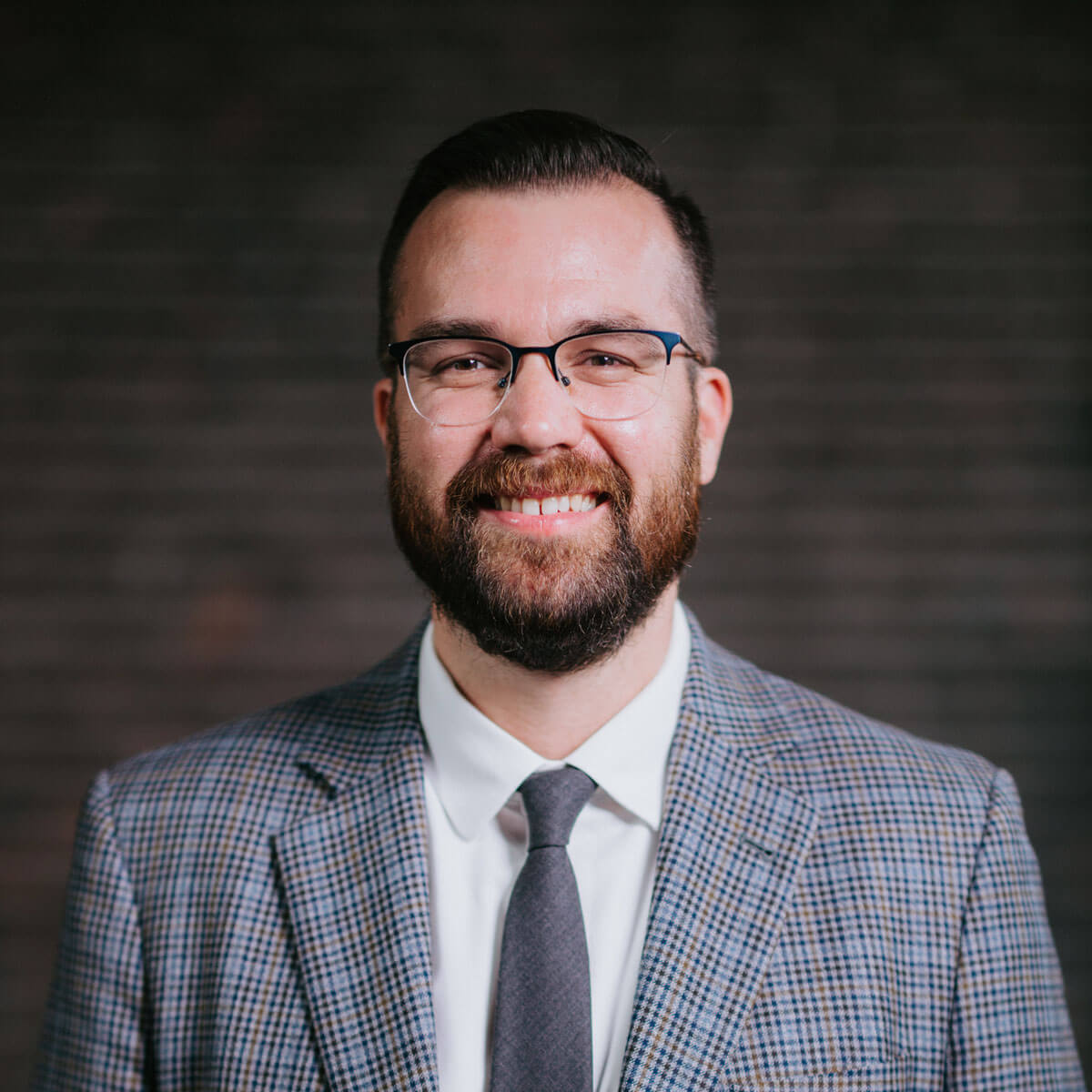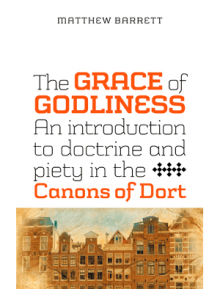In his The Grace of Godliness: An Introduction to Doctrine and Piety in the Canons of Dort, Matthew Barrett (Assistant Professor of Christian Studies at California Baptist University and Executive Editor of Credo Magazine) has filled a much needed gap in historical theological studies, providing an investigation of the concerns of the Synod of Dort for the worship and piety that is (or at least ought to be) fostered by the doctrines they endorse and defend. We were happy to talk with him about his work.
Books At a Glance (Fred Zaspel):
When I (FGZ) was working on The Theology of B.B. Warfield I was stunned that no one had done the work before me. I felt that way again as I read you’re The Grace of Godliness – how in the world was this book not written before now? Am I right in guessing that you have received encouraging feedback since its release? At any rate, the work was saved for you – congratulations and thanks on filling this gaping hole in historical-theological studies.
Matthew Barrett:
Thanks Fred. The book began as an article and at the outset I assumed there would be a multitude of resources on the subject. To my surprise, not only is there a very limited amount of studies on the Canons of Dort, but few draw the connection between Dort’s emphasis on the doctrines of grace and personal and corporate godliness and piety. As I argue in the book, Dort believed that the doctrines of grace do not undermine incentive to holy living and the pursuit of godliness, but rather these doctrines are actually the engine that drives our sanctification.
Books At a Glance:
First, give us a brief view of the setting of the Synod of Dort. What were the “sides” in dispute? And how did this gathering come about? More specifically, then, how did the synod come to address these specific points of doctrine? How was this agenda set for them? And by the way, maybe it would be helpful for some if you would tell us what a “Canon” is in this sense.
Matthew Barrett:
At the end of the sixteenth-century and beginning of the seventeenth-century what we see is a rising and growing number of Reformed churches. These Reformed churches were greatly influenced by John Calvin and his successor Theodore Beza, and especially the Reformed confessions. This is evident when we look at the Dutch Reformed churches in this time period. However, tension began to form when Jacob Arminius, a former student in Geneva, began to teach certain doctrines that deviated from the Reformed confessions. For example, he argued that God’s electing choice is conditional, based on the faith he foresees within man. He also believed that Christ did not die only for the elect but that his death was for all people without exception. Additionally, God distributes a prevenient grace which mitigates man’s depravity so that he now has the ability to cooperate with or successfully and finally resist divine grace no matter how hard God tries to save him. Naturally, many Reformed theologians believed that these beliefs, among others, deviated from the Reformed faith and, more importantly, were unbiblical. While Arminius died, his views did not, but were picked up by his followers who remonstrated against Reformed doctrine. Hence, they became known as the Arminian Remonstrants. So at the beginning of the seventeenth century Reformed theologians gathered together in order to respond to the Remonstrants. Their synod resulted in what we today call the five points of Calvinism. While the five points of Calvinism today are ordered in the acronym T.U.L.I.P., Dort actually ordered their points differently:
1 – Unconditional Election
2 – Limited (Particular) Atonement
3/4 – Total Depravity and Irresistible (Effectual) Grace (Dort treated these two together, showing how they are indispensable to one another)
5 – Perseverance of the Saints
These points were called canons. And no, not the type of canon you ignite and shoot! These were heads or rules of doctrine.
This all-too-short history is important because many assume that it was the Calvinists who drew up their five points only to have the Arminians respond. Quite the opposite is true, though I would argue that the theology found in the canons of Dort can be seen in the writings of theologians long before the 17th century.
There is far more that could be said, but you have to read the book!
Books At a Glance:
Describe the political and/or ecclesiastical process that followed in the months and years after the synod and its declarations. When, how, and with whom did these become officially recognized dogma?
Matthew Barrett:
The Canons of Dort were officially adopted on April 22, 1619 and they were read in front of all the delegates in attendance. All of the delegates, including the foreign representatives, pledged their allegiance to the canons without exception, and so you can imagine the influence the theology of Dort had internationally. The canons were then sent to the States General, which approved them, ordaining their publication on May 5, 1619. Historian Philip Benedict draws the conclusion that Dort was the only “truly ecumenical synod that the Reformed churches have ever had.” So Dort was very unique and arguably nothing like it has been seen since.
Books At a Glance:
Tell us a bit about the men who convened at the Synod of Dort. Where were they from? What was their normal work? Were they professional theologians? Pastors? Did some do both? Was it a mix of all the above?
Matthew Barrett:
The synod was an international synod, bringing together some of the brightest and best Reformed professors and pastors of the day. It consisted of eighty-four members, fifty-eight of which were Dutchmen, the rest being foreigners from Reformed churches (see appendix 2 where I list those who attended). Delegates were invited from all over, including Switzerland, Geneva, Great Britain, and France, among many other places. Interestingly, the delegates from France did not attend since the King of France refused to grant them permission. So at the synod seats were left empty to honor them.
While there are many who could be mentioned, some of those that especially stand out include Franciscus Gomarus, Johannes Polyander, Johannes Bogermannus, and Gisbertus Voetius. I have always thought that somebody should write a dissertation introducing and exploring the writings of those delegates assigned to the synod, examining their influence on the canons that were drafted.
One might assume, therefore, that the canons were written for the elite academics in the world. Not so. We have to remember that while the synod could have written these canons in a very academic tone and manner, they deliberately chose to write in such a way that the canons would be digestible for the pastor and lay person. In other words, they wrote these canons with the church in mind. So you will notice as you read through the canons that they are warm, with care and attention given to the Christian’s growth in godliness and piety. For example, look at the fifth canon on the perseverance of the saints. Dort spends considerable space providing biblical encouragement and instruction for the Christian struggling with assurance of salvation.
Books At a Glance:
Is there a general characterization you can give us regarding the more pastoral concerns reflected in the Canons of Dort? What are some of the leading points of application?
Matthew Barrett:
I did not write the book strictly as a commentary on the Canons of Dort. While I do explain each of the canons, my main purpose is to show how those canons do not serve to undermine Christian piety but actually support evangelical godliness. In other words, the charge that is often leveled against Reformed theology is that the doctrines of grace destroy any incentive to holy living and pursuit of godliness. I argue the exact opposite because I believe the authors of the canons did as well.
So, unconditional election does not result in laxness and sloth in Christian living, but is the fuel that ignites Christian holiness. Similarly, predestination is not meant to result in doubting one’s salvation or, on the other hand, boasting that one is elect, but rather should lead to Christian assurance and humility. Or consider particular atonement. Christ substitutionary death is for his bride, whom he loves in a special, saving way, a way that he does not love the rest of the world. Therefore, the personal nature of substitutionary atonement is cause for personal and corporate worship, magnifying Christ, our Savior and Lord. Total depravity and effectual grace serve to kill pride. The Christian has no room to boast in himself, not even in the slightest. His salvation is not due to anything in him, but solely to the grace of God. The irresistibility of grace, therefore, fosters true humility. When we boast, we boast in the Lord, not in ourselves. Finally, the preservation and perseverance of the saints is an incentive to holy living. The God who saved us will sanctify us and he has given to us the means by which we are to pursue godliness. He will not let Satan snatch us out of his hand but by the power of the Holy Spirit he will keep us so that we persevere to the end, even in the midst of hardship. One might notice that it is in this fifth canon that Dort has the most to say about how God’s sovereign grace relates to Christian piety and godliness.
Note: Tomorrow we will conclude our interview with Dr. Barrett, and he will discuss matters of assurance and other pastoral applications of the Canons of Dort.

